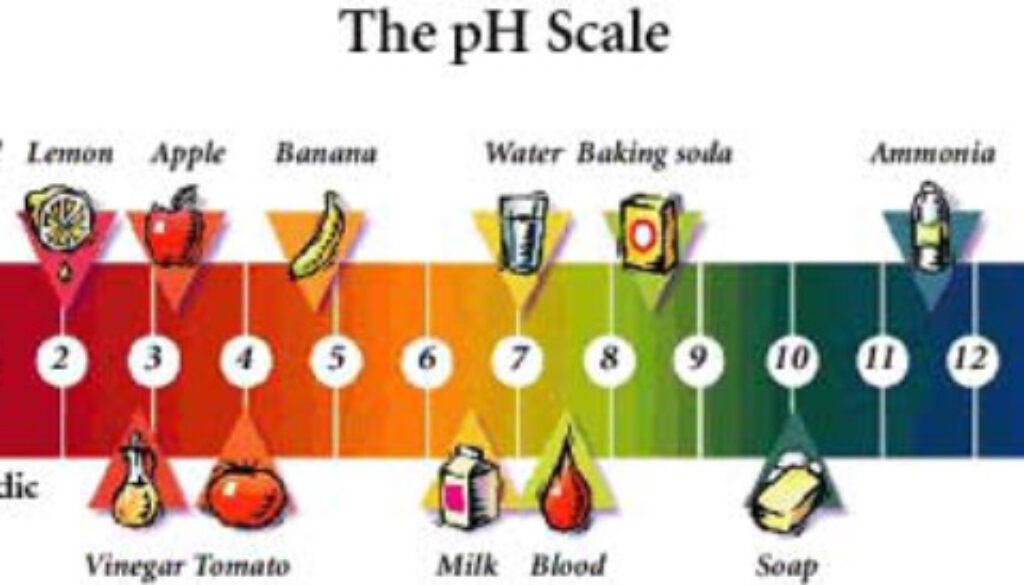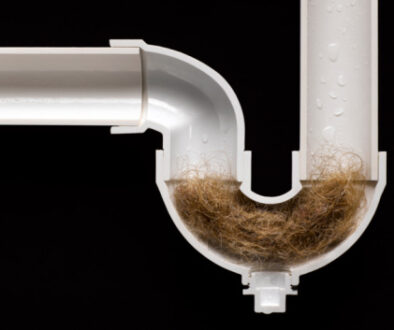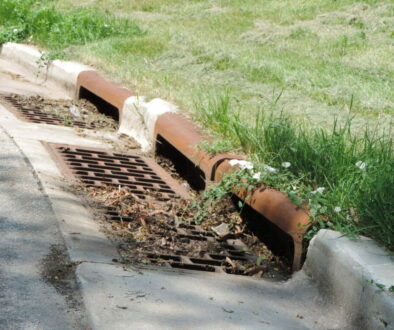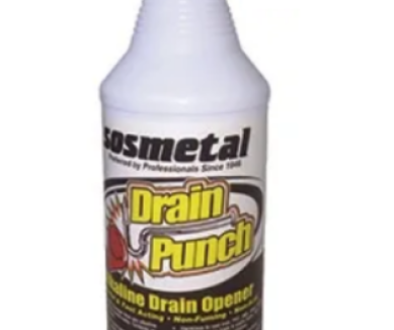Is Drain Cleaner An Acid Or Base
Picture this: you’re standing in your bathroom, staring at a stubborn clogged drain. You reach for that bottle of drain cleaner, but have you ever wondered what’s actually inside? Well, wonder no more! In this article, we’re going to dive into the world of drain cleaner and find out if it’s an acid or a base.
Now, don’t worry if you’re not a science whiz. We’re going to break it down in simple terms. You see, drain cleaners can either be acidic or alkaline (or basic). Acidic drain cleaners typically contain chemicals like sulfuric acid, while alkaline drain cleaners often use ingredients like sodium hydroxide.
So why does this matter? Well, the acidity or alkalinity determines how the drain cleaner works. Acidic drain cleaners work by breaking down organic matter, like hair and grease, through a process called oxidation. On the other hand, alkaline drain cleaners work by turning the clog into a soap-like substance that can be easily rinsed away.
So there you have it: drain cleaners can be either acids or bases, depending on their ingredients. Now that you know the basics, you’ll be better equipped to tackle that clog and keep your drains flowing smoothly. So let’s dive in and explore the fascinating world of drain cleaner!
Wondering whether drain cleaner is an acid or a base? Drain cleaners can be classified as either acidic or basic, depending on the formulation. Acidic cleaners are effective at removing mineral and hard water deposits, while basic cleaners are better at dissolving organic matter. It’s important to choose the right type of drain cleaner based on your specific needs and the type of clog you’re dealing with. Remember to always follow safety precautions when using drain cleaners.
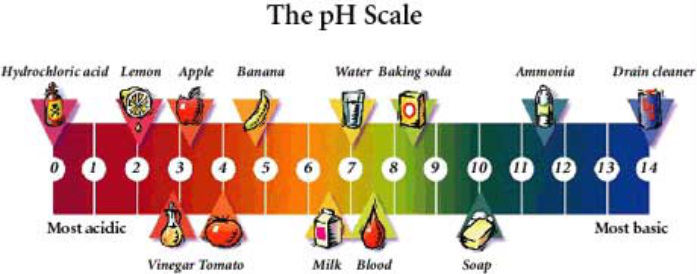
Is Drain Cleaner an Acid or Base: Unveiling the Truth
Welcome to an informative guide on drain cleaners. In this article, we will explore the intriguing question: is drain cleaner an acid or base? As we delve into the world of drain cleaners, we will uncover the science behind their composition, examine their effectiveness, and provide insights on how to choose the right one for your needs. So, let’s get started and unveil the truth behind drain cleaners!
The Basics of Drain Cleaners
When it comes to drain cleaners, understanding their fundamental properties is crucial. Drain cleaners are powerful substances designed to remove clogs and blockages in pipes and drains. They work by breaking down the materials causing the blockage, allowing water to flow freely once again. But are drain cleaners acids or bases? Let’s find out.
Acidic Drain Cleaners
Acidic drain cleaners are formulated using corrosive substances like sulfuric acid or hydrochloric acid. These chemicals react with organic materials, such as hair, grease, and soap scum, causing them to break down and dissolve. Acidic drain cleaners are highly effective in tackling tough clogs, but they also require caution during use due to their corrosive nature. It’s essential to follow the instructions provided by the manufacturer to ensure safe and effective usage.
One key advantage of acidic drain cleaners is their ability to remove mineral deposits from pipes. However, they may not be suitable for all types of plumbing materials. If you have PVC or other plastic pipes, it is crucial to check the label to ensure compatibility with acidic drain cleaners. Additionally, use them sparingly to avoid potential damage to your plumbing system.
It’s important to note that while acidic drain cleaners can be highly effective, they should be used with caution and proper protective measures. Always wear gloves, eye protection, and follow the safety guidelines provided by the manufacturer.
Basic Drain Cleaners
Unlike their acidic counterparts, basic drain cleaners, also known as alkaline or caustic drain cleaners, are formulated with substances like sodium hydroxide or potassium hydroxide. These chemicals work by converting fats and grease into a soapy substance that can be easily rinsed away. Basic drain cleaners are milder compared to acidic ones and can be a safer option for certain types of plumbing materials.
Basic drain cleaners are generally effective against organic materials, such as hair, grease, and food particles. They are often used for regular maintenance or to prevent minor clogs from forming. It’s important to note that stubborn or severe clogs may require the use of more potent acidic drain cleaners.
When using basic drain cleaners, ensure proper ventilation and follow the safety instructions provided. While they are generally considered safer to use, it is still important to take precautionary measures to protect yourself and your plumbing system.
Using Drain Cleaners Safely
Whether you opt for acidic or basic drain cleaners, safety should always be a top priority. Here are some general tips for using drain cleaners safely:
- Read and follow the instructions provided by the manufacturer.
- Wear gloves, eye protection, and suitable clothing to protect yourself.
- Ensure proper ventilation by opening windows or using fans.
- Never mix different types of drain cleaners or other chemicals.
- Avoid contact with skin, eyes, and clothing. If contact occurs, rinse immediately with water.
- Keep drain cleaners out of reach of children and pets.
- If you encounter persistent clogs or complex plumbing issues, consider consulting a professional plumber.
Factors to Consider when Choosing a Drain Cleaner
Now that we have explored the differences between acidic and basic drain cleaners, it’s important to consider additional factors when choosing the right one for your needs. Here are some key considerations:
Type of Clog
Different types of clogs may require different drain cleaners. For instance, acidic drain cleaners are more effective against hair and soap scum clogs, while basic drain cleaners are better suited for grease and food particle clogs. Assess the type of clog you are dealing with to determine the most suitable option.
Compatibility with Plumbing Materials
Before using any drain cleaner, check its compatibility with your plumbing materials, especially if you have PVC or other plastic pipes. Some corrosive acidic drain cleaners may cause damage to certain types of plumbing materials. Always check the label or consult a professional if you are unsure.
Environmental Considerations
If you have environmental concerns, consider using eco-friendly drain cleaners that are biodegradable and less harmful to the environment. These drain cleaners often utilize enzymes or bacteria to break down clogs naturally.
Professional Consultation
If you are uncertain about which drain cleaner to use or if you encounter persistent clogs and plumbing issues, it is advisable to consult a professional plumber. They can assess the situation and provide expert advice on the most suitable and effective solution.
Conclusion
In conclusion, drain cleaners can be either acidic or basic, depending on their formulation. Acidic drain cleaners, containing sulfuric acid or hydrochloric acid, are highly effective against tough clogs but require caution during use. Basic drain cleaners, formulated with substances like sodium hydroxide, are milder and can be a safer option for certain plumbing materials. When using drain cleaners, always prioritize safety and consider factors such as the type of clog, compatibility with plumbing materials, and environmental considerations. By making informed choices, you can effectively maintain a clean and clog-free plumbing system.
Key Takeaways: Is Drain Cleaner an Acid or Base?
1. Drain cleaners can be either acid or base.
2. Acidic drain cleaners contain chemicals like sulfuric acid or hydrochloric acid.
3. Basic drain cleaners are usually made with ingredients like sodium hydroxide or potassium hydroxide.
4. Acidic drain cleaners are effective against clearing clogs caused by organic materials like hair or grease.
5. Basic drain cleaners work well on clogs caused by inorganic materials like mineral deposits or soap scum.
Frequently Asked Questions
Drain cleaner is a common household product used to unclog drains. It’s important to understand whether drain cleaner is an acid or a base to ensure safe and effective use. Here are some frequently asked questions about the acidity or basicity of drain cleaner.
1. What is the pH level of drain cleaner?
Drain cleaner can have a pH level that indicates whether it is an acid or a base. Generally, drain cleaners are strong bases with a pH level of around 13. This high pH level makes them effective at breaking down organic matter and clearing clogs in drains.
It’s important to note that different types of drain cleaners can have varying pH levels, and some may be more acidic. Always read the product label or consult the packaging to determine the specific pH level of the drain cleaner you are using.
2. Can drain cleaner be an acid?
While most drain cleaners are bases, there are also some acidic drain cleaners available on the market. Acidic drain cleaners typically contain ingredients such as sulfuric acid or hydrochloric acid. These acids work by chemically dissolving the clog and clearing the drain.
However, it’s important to use acidic drain cleaners with caution, as they can be highly corrosive and may cause damage to pipes or fixtures. Always follow the instructions provided by the manufacturer and take proper safety precautions when using acidic drain cleaners.
3. Is it safe to mix drain cleaner with other chemicals?
No, it is not safe to mix drain cleaner with other chemicals, especially ones that contain bleach or ammonia. Mixing drain cleaner with these chemicals can result in the release of toxic fumes that can be harmful if inhaled or come into contact with the skin or eyes.
Additionally, mixing certain types of drain cleaners can also lead to chemical reactions that produce heat or even explosions. It’s important to always use drain cleaner as directed and avoid combining it with other chemicals to ensure your safety.
4. Can drain cleaner damage pipes?
Drain cleaner, particularly the ones that are acidic, has the potential to damage pipes if not used correctly. Acidic drain cleaners can corrode and eat away at certain materials, including pipes made of metal or PVC. This can lead to leaks, cracks, or even pipe failure over time.
To minimize the risk of pipe damage, it’s important to choose a drain cleaner that is compatible with your plumbing system. Read the product label or consult a professional if you are unsure about which type of drain cleaner is safe to use in your specific situation.
5. Are there eco-friendly alternatives to traditional drain cleaners?
Yes, there are eco-friendly alternatives to traditional drain cleaners that are safer for the environment and your pipes. Some options include enzymatic drain cleaners, which use natural enzymes to break down organic clogs, or homemade remedies like baking soda and vinegar mixtures.
These alternatives are typically milder and less corrosive, reducing the risk of damage to your pipes while still effectively clearing clogs. Additionally, eco-friendly drain cleaners are often biodegradable and safer for wastewater systems. Consider exploring these alternatives if you’re looking for a more environmentally friendly and gentler approach to drain cleaning.
Summary
Drain cleaner can be either an acid or a base, depending on the type. Acidic drain cleaners contain chemicals like sulfuric acid or hydrochloric acid, while basic drain cleaners use substances like lye or sodium hydroxide. These cleaners work in different ways to break down clogs and clear drain pipes. Acidic cleaners react with substances like grease and hair to dissolve them, while basic cleaners cause a chemical reaction that generates heat and breaks down clogs.
It’s important to handle drain cleaners carefully, as they can be harmful to humans and the environment. Always follow the instructions on the product label and consider using natural alternatives whenever possible. Remember, when dealing with clogs, it’s best to start with non-toxic methods before resorting to using drain cleaners.

